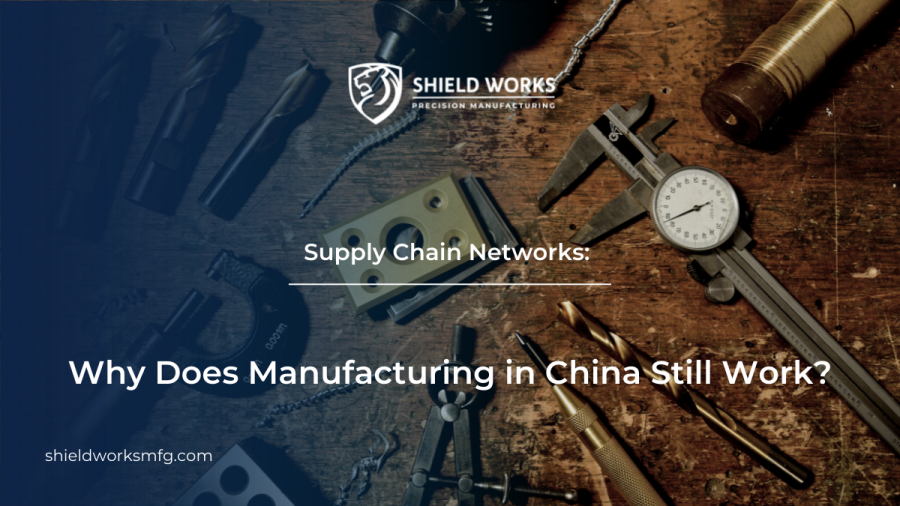Supply Chain Networks: Why Does Manufacturing in China Still Work?

Whether you’re outsourcing your production to China or not, there is no denying that manufacturing in China is one of the best options for many overseas companies.
China has maintained its position as the world’s largest manufacturing hub for the past 12 consecutive years.
There are many reasons why manufacturing in China still works.
Let’s dig a little deeper into why.
Does China Still Have Cost Advantages?
In the past decades, we have witnessed the rapid growth of China’s development. Most believed that it was the cost advantage and human resources that made China succeed.
Maybe it was, but things have changed.
Nowadays, China’s average labor costs aren’t low compared to many southeast Asian nations, such as Vietnam, Malaysia and the Philippines. The wages of skilled workers and high-teach talents grow fairly fast. Also, the average land prices are rapidly rising.
Therefore, there are many concerns that overseas companies tend to move their production to lower-cost countries since labor costs and land prices are getting higher in China.
However, it’s reported that foreign direct investment (FDI) topped 1 trillion RMB in 2021. It’s pretty clear that the comprehensive strength of China as a manufacturing superpower shouldn’t be neglected.
The answer is that China’s supply chain system is far more advanced than any other in the world.
Products Sold Worldwide Are Manufactured In China
You may have heard that in China, there are some small cities or even small towns
that are inconspicuous making world-class manufacturing contributions.
For example, Huludao, a coastal city in the Northeast China’s Liaoning province, is producing 25% of swimsuits in the global market. Since 2011, Huludao has been hosting an international beach-swimwear culture expo to expand its businesses and brands internationally.
In Yucheng County, located in Henan Province, more than 1,200 measuring tape making companies whose combined annual output exceeds 1.5 billion steel measuring tapes, accounting for 85% in China and 60% around the world.
So, you may wonder how such industries without high technology or difficult designs find their business opportunities.
By relying on China’s supply chain system, manufacturing in China will be more efficient, helping many businesses from home and abroad are able to gain their footholds.
The Problem Between Efficiency & Flexibility
Simply put, imagine that you want to outsource your production to a factory in China, there is no doubt that you will choose a high-efficiency factory to work with.
But keep in mind that only by being more specialized can a factory improve efficiency. In this case, it’s not hard to imagine this factory will be locked in certain product lines.
In this case, if you want something to be changed quickly, this factory will not be able to satisfy your needs and maybe you will turn to someone new. So, you also want the factory to be flexible. But flexibility is an obstacle to becoming a specialization.
Now you can see that keeping high efficiency and flexibility may not be compatible at the same time in a normal factory.
How Do Supply Chain Networks Work?
However, things will be much different if there is a powerful supply chain network.
Now there are tons of small and medium businesses (aka SMBs) that are ready to produce only some basic parts. And these SEBs are specialized in their field. Only in this way can these factories improve their efficiency without sacrificing much time and resources. Each SMB produces the basic elements, and every part can be easily assembled in another factory.
Then, all the SMBs get connected to be a wide supply chain network, solving the flexibility problem. In the end, these SMBs in the towns or the cities make themselves the certain type of manufacturing clusters.
It’s like Lego construction. Different factories produce different specific shapes of blocks with high efficiency. When you need some certain shape of blocks, you can purchase whatever you need and get them assembled, building your products.
The supply chain network connects businesses, making it easier for you to gather information and build your enterprise.
More importantly, the whole network nurtures an ability to control costs, which makes it hard for lower labor costs and land prices hard to contend with.
Let Shield Works Be Your Custom Manufacturing Partner
If are moving your production to China and looking for a reliable manufacturing partner, look no further. We are glad to help.
Shield Works is a British owned and managed company providing customized OEM manufacturing and assembly activities. Contact us to discuss your project today.
